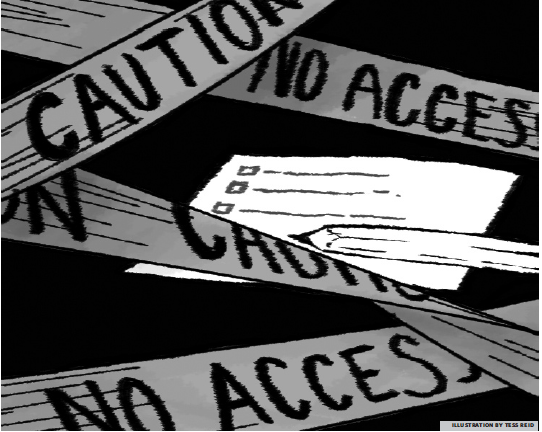After reporting on one of the most politically charged elections of the past several years, I was disappointed to see, once again, an alarmingly low voter turnout.
On average, 6,924 votes were counted for each of the executive member positions of the YFS.
Although the total number is higher than last year’s and no executive positions were acclaimed, the voter turnout is discouragingly small for an undergraduate population of over 53,000 students.
On one hand, you can blame students, and to a certain extent, it is their fault for not caring enough to exercise their right to vote. But on the other hand, the problem is systemic; the election process should not be as inconvenient and invisible to students as it is right now.
Like in past years, in this year’s election, Chief Returning Officer Bradley Chin, who is in charge of overseeing and regulating the elections, chose to hold two morning open forums (one during a snowstorm) for students to learn about their candidates’ platforms and to ask them any questions they may have. The Keele forum was advertised the day before, with a few posters being plastered on the walls of the Student Centre, but not anywhere else on campus.
And like many open forums in years prior, less than 10 students showed up for the Keele forum and about 15 students showed up for the Glendon forum, most of were there just because the forum was happening in the cafeteria.
Candidates were only given 11 days to win our votes, with two of those days falling on weekends, and seven of which happened to be during Multicultural Week. Clubs are busy organizing events, while students are busy participating in those events, with the elections being a mere afterthought for most.
If you choose to vote, you can only do so on campus, since the YFS and CRO continue to support a paper ballot system over online voting.
What the YFS elections lack is accessibility and student awareness of candidates’ platforms, which would allow them to make informed decisions. They rely on a short campaigning period, the majority of which is taken up by bigger and more interesting events going on on campus. They also rely on only two open forums, which happen so early in the morning that you have to wake up at an ungodly hour to attend.
They also only rely on paper ballots to gather votes from a mainlycommuting student population, a method that is no longer used by York’s board of governors to select their student representatives or by the York administration for spring referendums. Instead, York relies on online voting to accommodate as many students as possible.
The CRO may call it a successful election in his report released February 15 and say there was a high voter turnout, but is an election really a success when less than 15 per cent of the student population showed up and voted?
It’s not.
Students should start demanding that elections become more convenient and more accessible, so the winning YFS candidates can really say they represent the student population.


